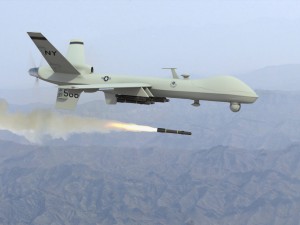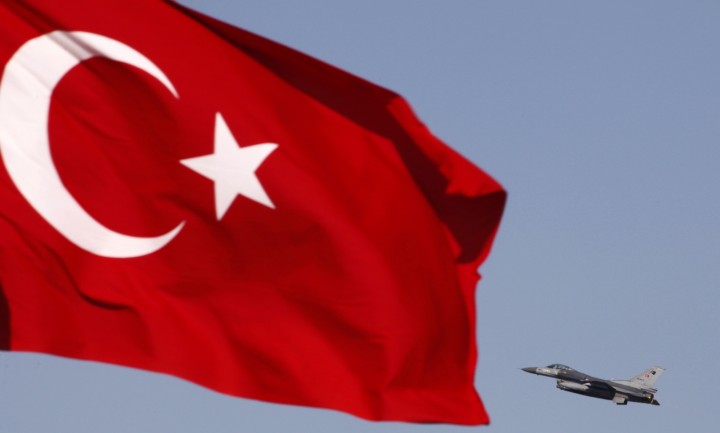What does the future hold for NATO-Pakistani relations? After the latest attack against NATO troops on Pakistani soil and the election of a new Pakistani prime minister, it is time to seriously consider the implications that the US drone program is having on the NATO mission in neighbouring Afghanistan.
A violent attack on NATO supply trucks traveling through the northwest of Pakistan on June 10, 2013 has killed four people and damaged valuable supplies en route to NATO’s mission in Afghanistan. The Pakistani Taliban has claimed responsibility for the fatal attack.
The relationship between NATO and Pakistan is a complex one, with the Pakistani government’s vow to aid NATO in its counterterrorism and peacemaking efforts in Afghanistan at odds with the attacks perpetuated on Pakistani soil against NATO troops. Pakistan’s strategic importance as a transit route to the NATO mission in Afghanistan makes the government’s continued support of the mission a key factor in its success. Should the Pakistani government follow through on its threat to close the routes in protest against American drone strikes, the consequences for NATO’s mission will be profound.
A recent meeting between the Chairman of NATO’s Military Committee General Knud Bartels and Pakistani Chief of Army Staff General Kayani was a show of military cooperation. NATO and the Pakistani government’s shared wish to bring political security to the region, particularly the long-troubled Afghanistan, was a focus of the talks. General Bartels’ statement that he and General Kayani “[share] the view that fair, secure, and inclusive elections in Afghanistan next year are pivotal and therefore stability in Afghanistan especially in the coming 18 months up to the elections are a common concern” underscores NATO’s desire to work alongside the Pakistani government. However, despite the Pakistani military’s cooperation with NATO, extremist groups like the Taliban are a continual threat to their mission for political security and stability in the region.
[captionpix align=”left” theme=”elegant” width=”320″ imgsrc=”http://www.nato.int/nato_static/assets/pictures/stock_2013/20130530_130530-cmc-pakistan_rdax_276x190.jpg” captiontext=”General Bartels and General Kayani at the recent military summit.”]
Although Pakistan has publicly banned and decried the Taliban, the group’s presence is largely unchecked in more rural regions of the country, particularly in the northwest region which is dominated by the Khyber tribe. The government has taken action by placing valuable bounties on the heads of Hakimullah Mehsud and other prominent Taliban leaders, but results have been minimal as no bounties have been collected thus far.
The Pakistani Taliban is distinct from the Afghan Taliban but no less dangerous to NATO’s mission in Afghanistan. The Pakistani Taliban is a relatively new offshoot of the terrorist organization, officially founded in 2002 as a result of the war in Afghanistan but active since the 1990’s. NATO’s mission in Afghanistan has been vehemently denounced by both the Afghan and Pakistani Taliban as endemic of Western corruption and both groups have not hesitated to use violent measures to underscore their opinion.
The recent drone strikes by the United States have incensed the Pakistani government as well as the Taliban. Newly elected Pakistani Prime Minister Nawaz Sharif has condemned the strikes as a violation of Pakistan’s sovereignty, and warned that his government will not turn a blind eye to the attacks. The Pakistani Taliban has informed Sharif’s government that the violence will continue until they close the supply route into Afghanistan used by NATO and American troops. Despite the government’s official rejection of the extremist group, their shared opposition to the American drone strikes may well override this hostility.
If the United States and NATO wish to continue their mission in Afghanistan and minimize future attacks on their troops, they must either put a stop to the drone attacks, as so many countries have called for, or utilize alternate supply routes in the region. Canadian Defence Minister Peter MacKay has supported the U.S.’ use of drone technology, stating that with increasingly accurate networks, “these eyes-on systems that can literally read a licence plate from outer space have increased our ability to decrease civilian casualties”.
Although the American drone strikes in this region are intended to target Taliban forces acting against the American-led mission in Afghanistan, recent figures suggest that up to 3,600 Pakistani civilians have been killed by the drone attacks since 2004, angering the Pakistani government and much of the international community. The drone strikes are not sanctioned by the United Nations.
This latest attack on NATO troops, which has resulted in the loss of supplies or equipment and four lives, is an ominous reminder that the Pakistani government’s public support for the NATO mission is not nearly enough to guarantee its safety. As long as the United States continues to utilize drone strikes against the region’s militants, sparking the fury of both the terrorist sects and the government, NATO troops will be caught in the crossfire.




